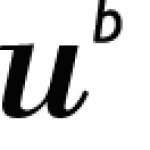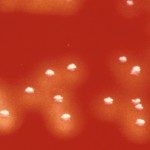Présentation
Neurolisteriosis is a common and frequently fatal complication of Listeria monocytogenes infection in human and ruminants. It has a high impact on human and animal health, but only little is known about its pathogenesis. Intriguingly, neurolisteriosis apparently occurs in various phenotypes. In ruminants only rhombencephalitis occurs, whilst humans may be affected by meningitis, meningoencephalitis, brain abscesses and rhombencephalitis.
This project aims to study comparatively and integratively human and ruminant neurolisteriosis on the level of the host (neurolisteriosis phenotypes), pathogen (microbiology) and experimental models (molecular pathophysiology of neurotropism). The correlation of human and ruminant clinical and neuropathology data with genetic data of the field strains and their investigation in experimental models will allow to identify the factors that determine neurotropism and invasion. To this end, we will exploit the apparent similarities and differences in ruminant and cattle neurolisteriosis that indicate the ability of L. monocytogenes to reach the brain by various strategies. Unraveling how L. monocytogenes, a widely studied model pathogen, targets the central-nervous system via various pathways is crucial to understand the principles of brain invasion by intracellular microbes.
This project is expected to enable the future development of new therapeutic strategies that aim to prevent L. monocytogenes from invading and spreading within the central-nervous system. Additionally, it will generate important information on the molecular epidemiology and phylogeny of human and ruminant L. monocytogenes neurotropic strains. This will enable future studies investigating the spread of neurotropic strains in the livestock population, environment and food and will facilitate surveillance and prevention of infection in both ruminants and humans.















